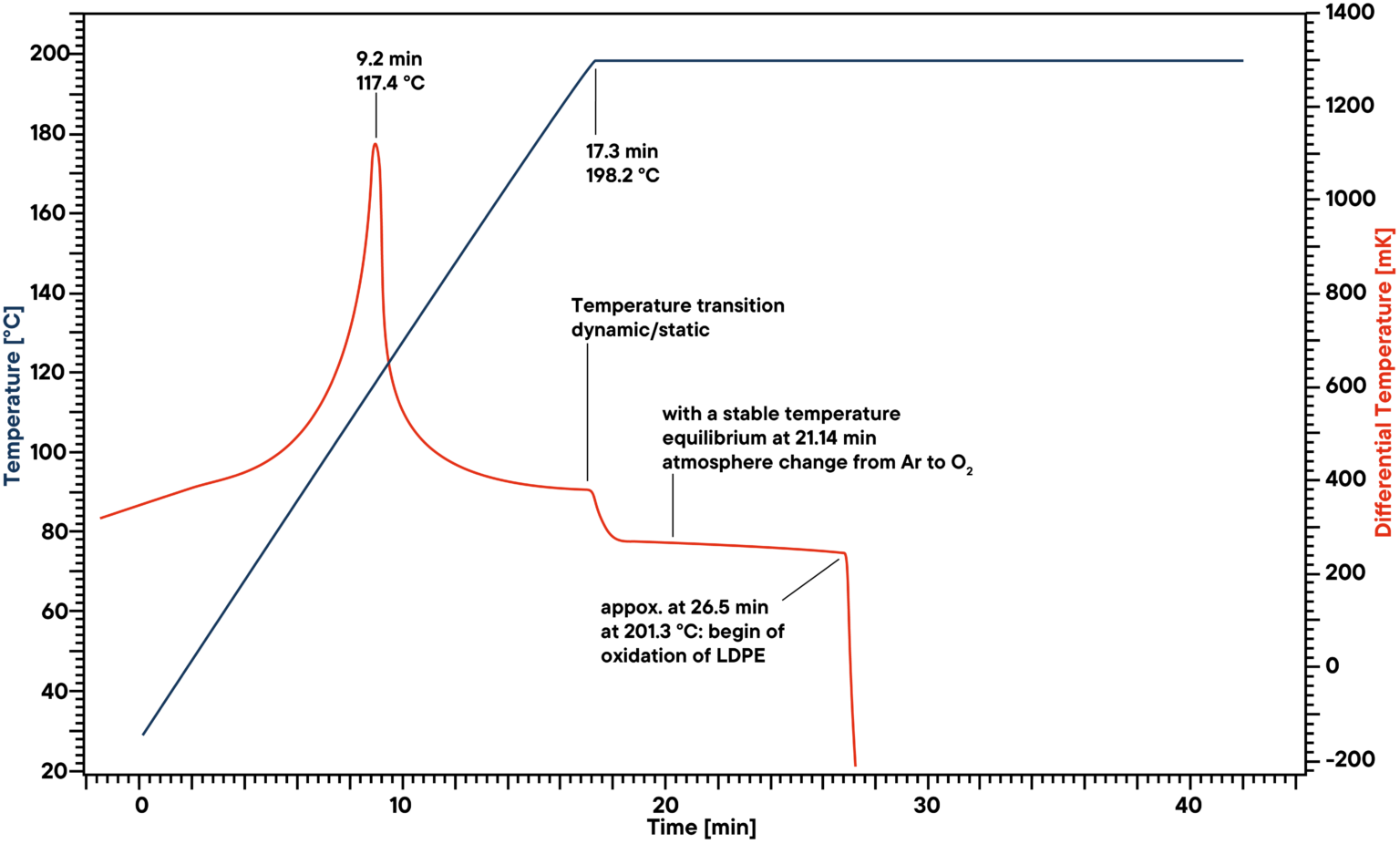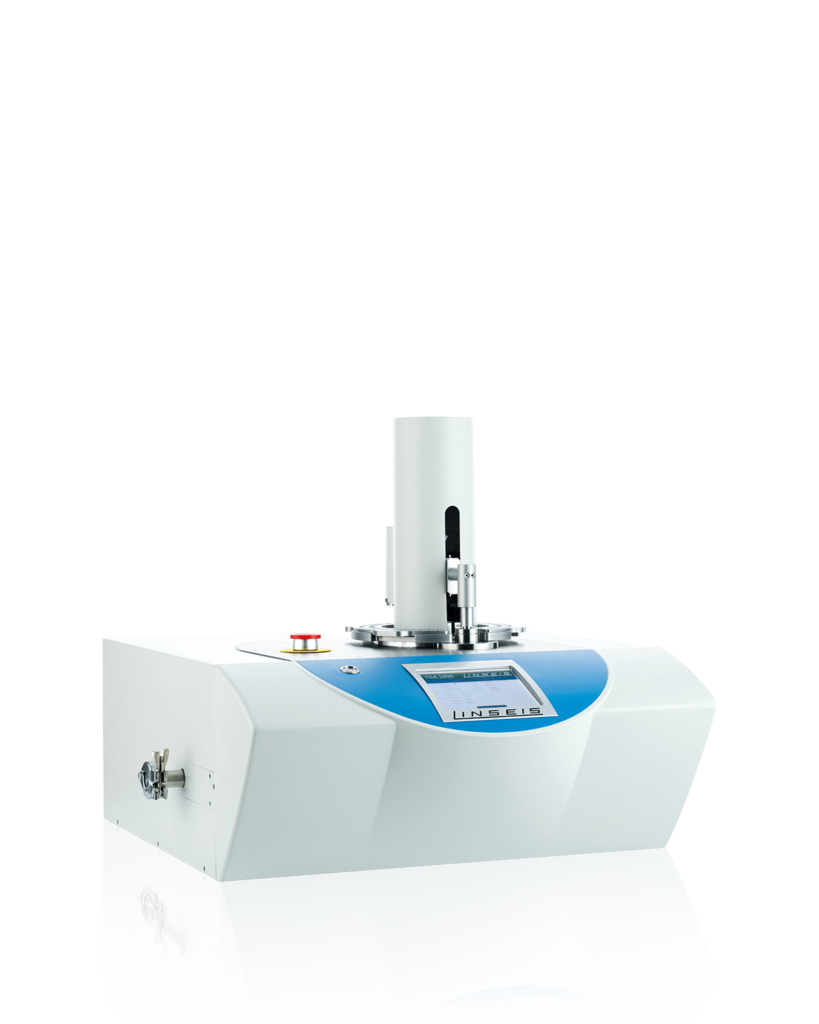The oxidation and aging behavior of materials like polymers or other oxygen sensitive materials can be investigated by DSC using the OIT (Oxidation induction time or oxidation induction temperature) test. This test can compare the trend of materials to oxidize and decompose and therefore is important for quality control and material usage.

In this example, a small piece of low-density poly ethylene (LDPE) was heated with 10K/min at constant argon flow rate of 10 l/h. At 200°C, an isothermal segment was applied and later the gas flow was switched from argon to oxygen at 10 l/h. At the point where the heating ramp goes into the isothermal segment, there is a response « step » in the heat flow signal.
After the signal has become stable again, the atmosphere was changed to oxygen. Seven minutes after that, the heat flow shows a significant change, which symbolizes the onset of the oxidation. The time delay between the switch to oxygen and the begin of the response signal is considered as the oxidation induction time of the given material at 200°C.
This information can be used for comparison of materials and prediction of aging behavior. Several national or international Standards such as ASTM D3895, DIN EN 728 or ISO 11357-6 cover this topic.

